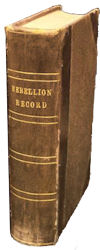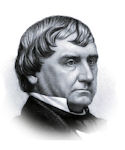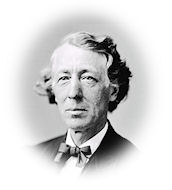WASHINGTON, D. C., January 23, 1861.
Hon. J. HOLT, Secretary of War:
SIR: I proceeded to Pensacola, Fla., pursuant to orders received from the General-in-Chief, with dispatches to Commodore Armstrong, U. S. Navy, commanding the navy-yard at that place, and agreeably to your request submit the following statement respectfully to your notice:
On my arrival at Pensacola I, as soon as the light of day would permit, went to the beach (having learned on the cars when about twenty miles from the city that the yard had been surrendered, and that two vessels—the Wyandotte and Supply–of the U. S. Navy, were in the harbor) to make a signal to Captain Berryman, of the Wyandotte, in order to place in his hands the dispatches intended for Commodore Armstrong, the latter being a prisoner of war. I there found no sign of a naval vessel, and leaned that they were distant some seven miles. I then returned to the hotel, and after having arrived on the porch, where I had been only a few minutes, I was arrested by two persons, who said they were authorized by Colonel Chase to arrest me. They carried me to the latter’s house, where I was brought before the colonel, in the presence of some six or eight persons, and requested, or rather demanded, to surrender my dispatches, which I refused to do, as my dispatches were for Commodore Armstrong. Colonel Chase then said he would allow me to deliver them to Commodore Armstrong in the presence of Captain Randolph, then in charge of the navy-yard for the State of Florida. I proceeded to the yard in company with three troopers belonging to the State troops, and saw the commodore, who received my dispatches sealed, and they, still sealed, were demanded from him by Captain Randolph, who opened them and then forwarded them to Colonel Chase. I remained at the yard all of one day, having been placed on parole of honor not to communicate with any officer of the United States Government either at the forts or at the yard, but learned from reports and what I saw that the fort occupied by the United States had been re-enforced by some thirty or more sailors belonging to the navy-yard. The yard had been surrendered, and all the officers, with the marine guard, had been placed on their parole, and the latter had been placed on board of the Supply, to be conveyed to New York. The yard, as also Fort Barrancas, was occupied by State troops, and Fort McRee was to be occupied so soon as troops should arrive.
I left on the 15th instant, and was given by Colonel Chase the following, in order to allow me a safe passage through the country:
HEADQUARTERS PENSACOLA DISTRICT,
January 15, 1861.Lieut. J. S. Saunders, of the Ordnance, is under parole to me, and is free to go to any part of the country he desires; and this is his safe-conduct for that purpose.
WM. H. CHASE,
Colonel, Commanding Forces of Florida.
I have the honor to remain, respectfully, your obedient servant,
JNO. S. SAUNDERS,
Brevet Second Lieutenant, Ordnance, U. S. Army.








